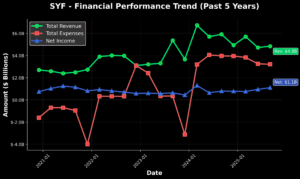The following is a guest editorial courtesy of Darren O’Hare, CASS Manager at Finalto, an innovative prime brokerage that provides bespoke fintech and liquidity solutions. Finalto deliver best-in-class pricing, execution and prime broker solutions across multiple assets, including CFDs on Equities, Indices, Commodities, Cryptos and rolling spot FX, Precious and Base Metals, and bespoke products such as NDFs.
CASS is one of the cornerstones of regulatory financial protection in the UK. The FCA’s CASS (Client Assets Sourcebook) establishes the standards firms must meet to protect client money and assets and to maintain trust in the financial system.
As laid out by CASS, firms need to effectively identify risks and implement effective controls to manage those risks. Achieving this requires meticulous and comprehensive record keeping and reporting. It’s a process that can be clunky, time-consuming and error prone if you rely on manual processes:
Error prone
Spreadsheets are subject to human error, as anyone working with complex data will recognise. That means an unacceptable and unavoidable risk of incorrect data entry and failed reconciliations.
Lack of audit trail
Spreadsheets lack automatic audit trails required by the FCA to ensure transparency and accountability.
Scalability limits
CASS regulations require financial services firms to effectively manage large volumes of complex data. At a certain point, it becomes unwieldy and impractical to still use manual entry.
Opportunity cost
Team members who spend hours each day doing manual data entry have less time to spend on more productive and creative tasks.
Developing an automation strategy
Fortunately, a new generation of powerful automation solution tools means that firms no longer need to rely on spreadsheets and can minimise the associated risk of human error.
Upon assuming the role of CASS Manager at Finalto, one of my foremost objectives was to enhance operational resilience and efficiency through a structured automation strategy. Following a comprehensive evaluation of specialist software solutions, we implemented a platform that not only simplified and accelerated our CASS processes but also aligned with our Target Operating Model (TOM), ensuring consistency, scalability, and regulatory robustness across the function.
The case for automation is clear. But the real question is how do you turn efficiency gains into enhanced value?
Enabling governance
At Finalto, we’ve focused on using automation to strengthen governance and insight, approaching automation as a tool to transform our processes.
1. Enhanced reporting
Reporting has shifted from labour-intensive, data-heavy documents to streamlined, insight-driven updates. Instead of compiling dense reports, I can now deliver concise, accurate briefings to the board and other departments, providing frequent, actionable insights rather than occasional exhaustive compendiums of data.
2. Interdepartmental Coordination
Automation has also freed capacity within Finance, enabling more proactive engagement with teams like Onboarding and Client Services. This closer coordination improves visibility, streamlines cross-departmental processes, and helps us anticipate issues before they arise.
3. Scenario-based training
We have implemented training sessions with the finance team informed by real-world scenarios. In these sessions, we consider actual internal cases studies, where breaches have happened, how controls can be made more robust to prevent further breaches. This results in actionable insights that enable us to better understand our internal processes and improve our operational resilience and effectiveness.
4. CASS Rule Applicability & Risk Mapping
With the time saved through automation, we were able to fully leverage another key component of our chosen provider’s offering: a Governance, Risk & Compliance (GRC) portal. This platform enabled us to systematically align our Applicable CASS Rules with corresponding risks, creating a clear and traceable risk framework. For each identified risk, we implemented targeted controls and linked them to supporting processes, ensuring a robust and auditable control environment. This not only enhanced our oversight capabilities but also strengthened our ability to demonstrate compliance and operational resilience.
Turning efficiency into advantage
Automation creates room for enhanced oversight and strategic insight. However, efficiency gains don’t automatically translate into more resilient operations or better client service. You need to be proactive about turning efficiency into enhanced value.
These are lessons that extend beyond CASS. From compliance and regulatory reporting to using AI for operational insights, efficiency gains should be seen as an opportunity to grow.
As automation becomes more widespread across financial services operations, the key differentiator will increasingly be the intelligent uses to which we can put the latest generation of digital tools.
All opinions, news, research, analysis, prices or other information is provided as general market commentary and not as investment advice and all potential results discussed are not guaranteed to be achieved. The information may have been derived from publicly available sources, company reports, personal research, or surveys. Past performance is not indicative of future performance. Trading carries risk of capital loss. Service available to professional clients only.









